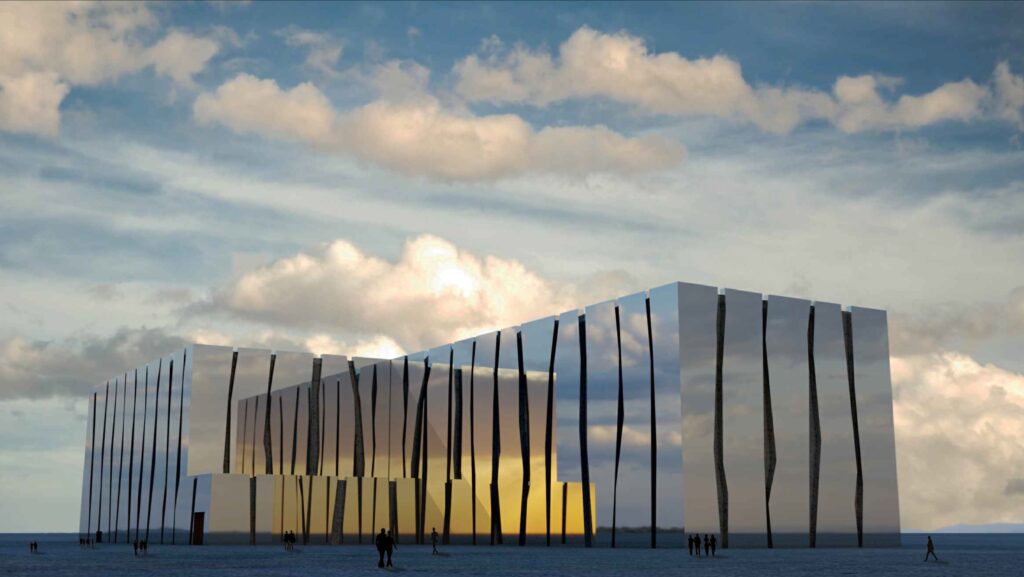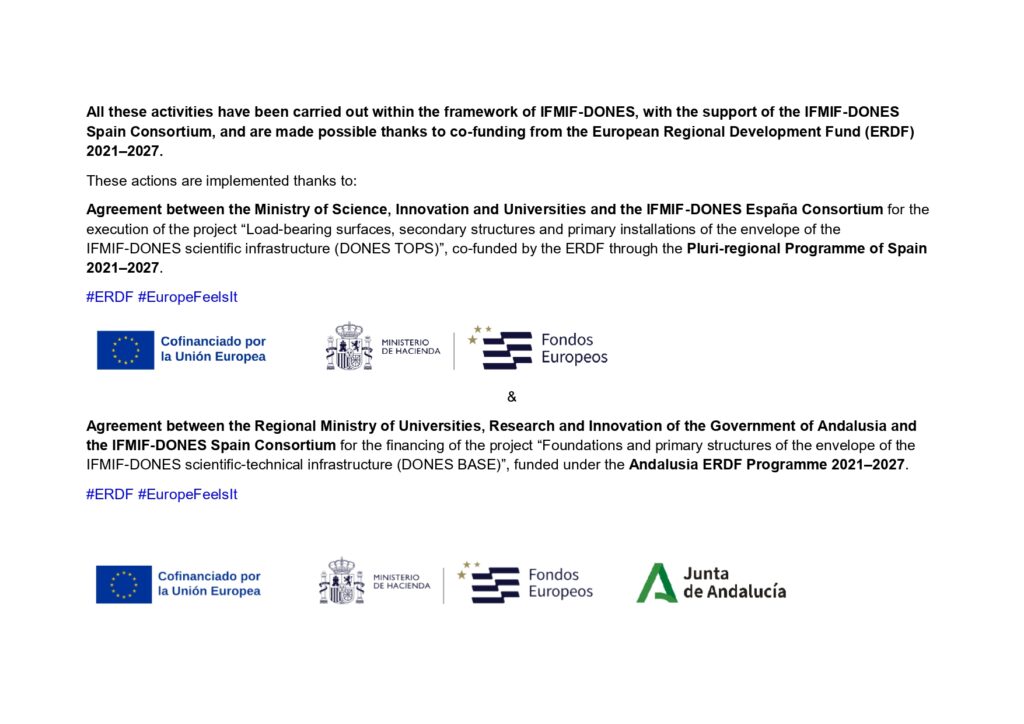The Andalusian Government approves €100 million payment for IFMIF-DONES
Posted on |

The Governing Council of the Andalusian Government has authorised the advance payment of an exceptional grant amounting to €99.87 million to finance the foundations and construction of the primary structures of the building that will house the IFMIF-DONES particle accelerator in Escúzar (Granada).
This funding, drawn from the Andalusia ERDF Program 2021–2027, will be transferred in full to the IFMIF-DONES España Consortium, which promotes the facility and is equally represented by the Governments of Andalusia and Spain. The Regional Ministry of University, Research and Innovation will sign an agreement with the Consortium during the summer of 2025 to provide legal backing for this exceptional subsidy.
This amount forms part of the €107.06 million the Andalusian Government plans to contribute to this scientific infrastructure by 2027. The remaining €7.19 million, which will bring the total to € 8.38 million, will be sourced from self-financed funds previously committed by the Regional Ministry. The Ministry of Science must also contribute €107.06 million within the same period, bringing the total to €214.12 million. By 2033, the total investment is expected to rise to €422.5 million, co-financed 50/50 by both administrations.
The €99.87 million will fund a significant part of the infrastructure’s construction—specifically, preliminary studies, design and evaluation of the land, and the necessary actions to prepare the site for the proposed building. It will also cover earthworks, soil reinforcement, foundations, and auxiliary installations. Additionally, the funds will be allocated toward constructing the primary structures of the facility, including beams, columns, and slabs, which are crucial for the building’s stability and resistance.
The primary mission of the IFMIF-DONES particle accelerator is to test, validate and qualify materials intended for use in future nuclear fusion power plants. The project will unfold in three phases over an estimated 35-year period, beginning with the construction and commissioning phase, which is expected to last approximately 10 years. Once operational, the facility will enter a 20-year experimentation phase (2035–2055) to irradiate materials and support the design of continuous nuclear fusion power generation. Experiments will also be conducted in physics, medicine, and industry.
After operations cease, a final phase will begin, either involving decommissioning over approximately five years or an extension of operations for an undetermined period.
This facility presents a unique opportunity to position Andalusia as a national and international benchmark in knowledge and research—particularly in the search for clean and unlimited energy sources. The synergies and knowledge transfer generated will also enable businesses in Granada and Andalusia to adopt new technological developments in fields such as fundamental physics, medicine, astrophysics, and industry.
The economic impact of this scientific infrastructure is expected to be significant. For the national economy, it is estimated that €6.133 billion in goods and services will be generated (79% of the project’s total economic output), resulting in a gross value added (GVA) increase of €2.752 billion, with a regional impact of €687 million.
Beyond its economic effects, the project will play a crucial role in fusion technology research, contributing to the development of a comprehensive materials database based on the results of irradiation experiments. It will also advance the environmental science agenda by supporting the transition to sustainable development.
Furthermore, this facility enables Andalusia to lead a new energy model in the face of the current climate crisis. Nuclear fusion is a clean, safe, sustainable energy source capable of producing sufficient energy to meet the demands of large populations, relying on virtually unlimited fuel. It will also have a profound impact on human capital, fostering the professional growth of Andalusian researchers and enhancing the training of postgraduate students pursuing fusion-related doctoral theses at the University of Granada and other academic institutions across Andalusia.
Source: Junta de Andalucía
